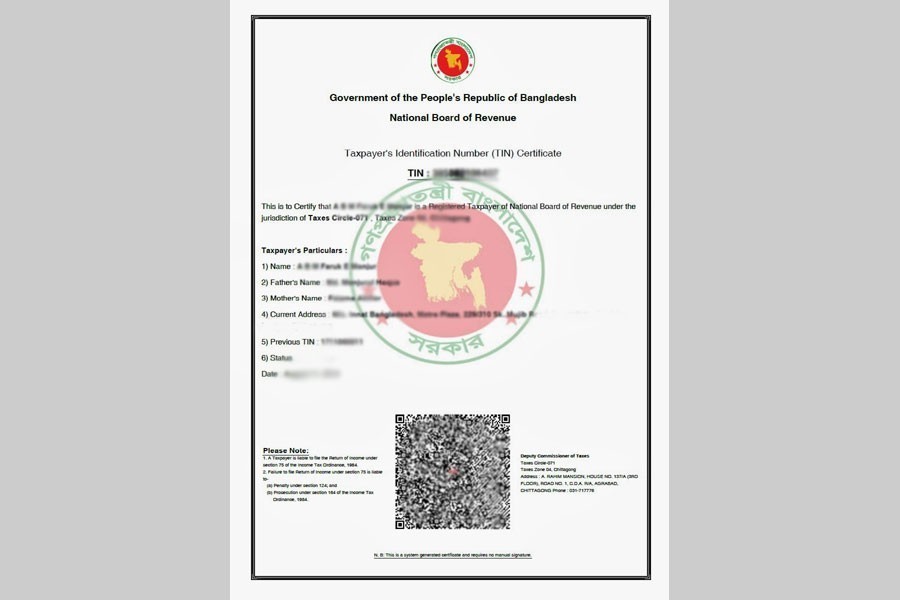Of the country's 8.5 million Tax Identification Number (TIN) holders, only 2.8 million, which is about one third of the total potential taxpayers, did actually file their tax returns until December 31 last year. These figures on last year's submission of tax returns, as could be gathered from reports, may show the NBR's capacity for collection of taxes in a poor light. Similarly, one may also tend to believe that two-thirds of the TIN holders are basically tax-evaders. But sometimes figures may be misleading. In fact, there are a large number of persons registered with the NBR as taxpayers, though they have no taxable income. But in exercise of the Finance Bill 2022, effective from this fiscal year (FY2022-23), the NBR has made the submission of annual tax return acknowledgement receipts mandatory by citizens if they want to get certain services. The number of such services is over 40 including, for instance, obtaining or maintaining a credit card, getting membership of a professional body, opening a postal savings account, maintaining a bank account, buying a savings instrument and so on.
As a result, even many poor and marginal people including housewives have to obtain TINs and submit tax returns showing zero income before they can access the listed services. Small wonder that the number of persons registered with the tax department and holding TINs has increased significantly. If anything, these non-productive TINs have only caused to inflate the size of the database of the taxpayers, but contributed nothing to the state exchequer. At the same time, one also needs to consider the hassles those TIN holders, many of whom are unlettered, have to go through every year while submitting their tax returns.
It is not that the tax collecting authority is not aware of the difficulties many TIN-holding retired service-holders, senior citizens, housewives and others with little or no income have to face every year when the time for filing tax returns comes. But constrained by the 1984's Income Tax Ordinance, they can hardly do anything to relieve those TIN-holders of their suffering. For the ordinance provides no option for those people to withdraw their TINs from the NBR. Worse yet, if they fail to file their tax returns, notices of non-compliance will be issued against them. This is not only an issue with the said TIN-holders, it is also a big encumbrance on the tax department to deal with so many TINs with little or nothing to add to the nation's revenue earnings. The government, to get around this incongruity, is learnt to be seriously thinking of revamping the system of issuing TINs. To this end, a plan is reportedly going to be worked out to issue temporary TINs for people with marginal incomes. In this system, temporary TINs would be issued for obtaining services that require showing proof of tax payment mandatorily. Such TINs would be cancelled as soon as the particular service is delivered. This is undoubtedly an innovative idea to deal with the issue at hand.
The government is reportedly moving ahead with this idea of issuing one-shot TINs for incorporation in the budget for the next fiscal year (FY 2023-24). That would definitely be a step in the right direction. Hopefully, the idea of issuing temporary TINs would be accepted in the next budget and the segment of the TIN-holders being thus affected by the old system would soon be spared the trouble they have so far been going through.


